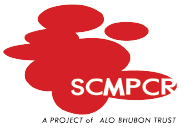Cultural factors influence cancer screening and treatment in South Asian women॥NIHR॥08 August 2017
Cultural factors are influencing whether South Asian women are screened for and seek treatment for cancer, according to NIHR research.
Dr Pooja Saini, a researcher at the NIHR Collaboration for Leadership in Applied Health Research and Care (CLAHRC) North West Coast, has told the BBC Victoria Derbyshire programme that some South Asian women are not having treatment for cancer because of cultural pressures.
Other South Asian women are avoiding screening or hiding their cancer treatment because of a perceived stigma about the disease.
South Asian women diagnosed with female cancers have poorer survival rates than the UK average, which is partly attributable to their lower uptake of screening opportunities.
Dr Saini is conducting a systematic review on social, cultural and individual influences on the beliefs, attitudes and behaviours of South Asian women regarding asymptomatic screening for female cancers. Read more

